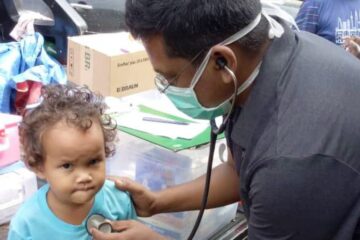As millions of individuals around the world are forced to flee their homes due to conflict, persecution, or natural disasters, ensuring their health and well-being becomes paramount. In this article, we will explore the various challenges faced by refugees in accessing healthcare, the barriers that hinder their access to essential services, and the strategies and initiatives aimed at improving refugee health outcomes.
Understanding the Refugee Crisis The refugee crisis is a global humanitarian issue characterized by the displacement of millions of people from their homes. Whether fleeing war-torn regions, political oppression, or environmental disasters, refugees often face immense challenges in their journey to safety.
Importance of Addressing Refugee Health Issues The health and well-being of refugees are closely intertwined with broader issues of human rights, social justice, and global stability. Neglecting refugee health not only exacerbates human suffering but also poses public health risks and undermines efforts for peace and development.
II. Refugee Health Challenges
Lack of Access to Healthcare Facilities One of the most pressing challenges facing refugees is the lack of access to healthcare facilities. Many refugees find themselves in overcrowded camps or urban settlements with limited or no access to basic medical services.
Mental Health Concerns Refugees are disproportionately affected by mental health issues such as depression, anxiety, and post-traumatic stress disorder (PTSD). The trauma of displacement, loss of loved ones, and exposure to violence can have long-lasting psychological effects.
Communicable Diseases Refugee populations are at increased risk of communicable diseases due to overcrowding, poor sanitation, and limited access to healthcare. Outbreaks of diseases such as cholera, measles, and tuberculosis are common in refugee camps and settlements.
Malnutrition and Food Insecurity Many refugees experience food insecurity and malnutrition due to limited access to nutritious food, inadequate shelter, and economic instability. Children and pregnant women are particularly vulnerable to the long-term consequences of malnutrition.

Trauma and Post-Traumatic Stress Disorder (PTSD) The experience of forced displacement and exposure to violence can leave lasting psychological scars on refugees, contributing to high rates of PTSD and other trauma-related disorders.
Women’s Health Issues Women and girls often face specific health challenges in refugee settings, including reproductive health issues, sexual violence, and limited access to maternal and child healthcare services.
III. Barriers to Refugee Healthcare
Language Barriers Language barriers can pose significant obstacles to refugees seeking healthcare, as they may struggle to communicate with healthcare providers and understand medical instructions.
Socioeconomic Factors Refugees often face socioeconomic barriers to healthcare, including poverty, unemployment, and lack of access to education. These factors can limit their ability to afford medical care or navigate complex healthcare systems.
Legal and Policy Barriers Legal and policy barriers, such as restrictive immigration policies and limited access to healthcare entitlements, can prevent refugees from accessing essential healthcare services.
Cultural Differences Cultural differences between refugees and healthcare providers can lead to misunderstandings and mistrust, hindering effective communication and healthcare delivery.
Stigmatization and Discrimination Refugees may experience stigma and discrimination in healthcare settings due to their refugee status, nationality, ethnicity, or religion. This can discourage them from seeking care and exacerbate existing health disparities.
IV. Strategies for Improving Refugee Health
Strengthening Healthcare Infrastructure Investing in the development of healthcare infrastructure in refugee-hosting countries is essential for ensuring access to quality healthcare services for refugees.
Mental Health Support Programs Implementing mental health support programs that are culturally sensitive and trauma-informed can help address the psychological needs of refugees and promote healing and resilience.
Disease Prevention and Control Measures Implementing disease prevention and control measures, such as vaccination campaigns, vector control, and sanitation improvements, can help reduce the spread of communicable diseases in refugee settings.
Nutrition and Food Assistance Programs Providing access to nutritious food and nutrition education programs can help address malnutrition and food insecurity among refugee populations.
Trauma-Informed Care Training healthcare providers in trauma-informed care approaches can help them better understand and respond to the unique needs of refugee patients who have experienced trauma.
Gender-Sensitive Health Services Ensuring access to gender-sensitive health services, including reproductive healthcare, maternal and child health services, and support for survivors of gender-based violence, is essential for promoting the health and well-being of refugee women and girls.
V. Innovative Approaches to Refugee Healthcare
Telemedicine and Mobile Health Units Utilizing telemedicine and mobile health units can help overcome geographical barriers and improve access to healthcare services for refugees in remote or underserved areas.
Community Health Worker Programs Training and deploying community health workers from refugee communities can help bridge the gap between healthcare providers and refugee populations, increasing trust and cultural understanding.


